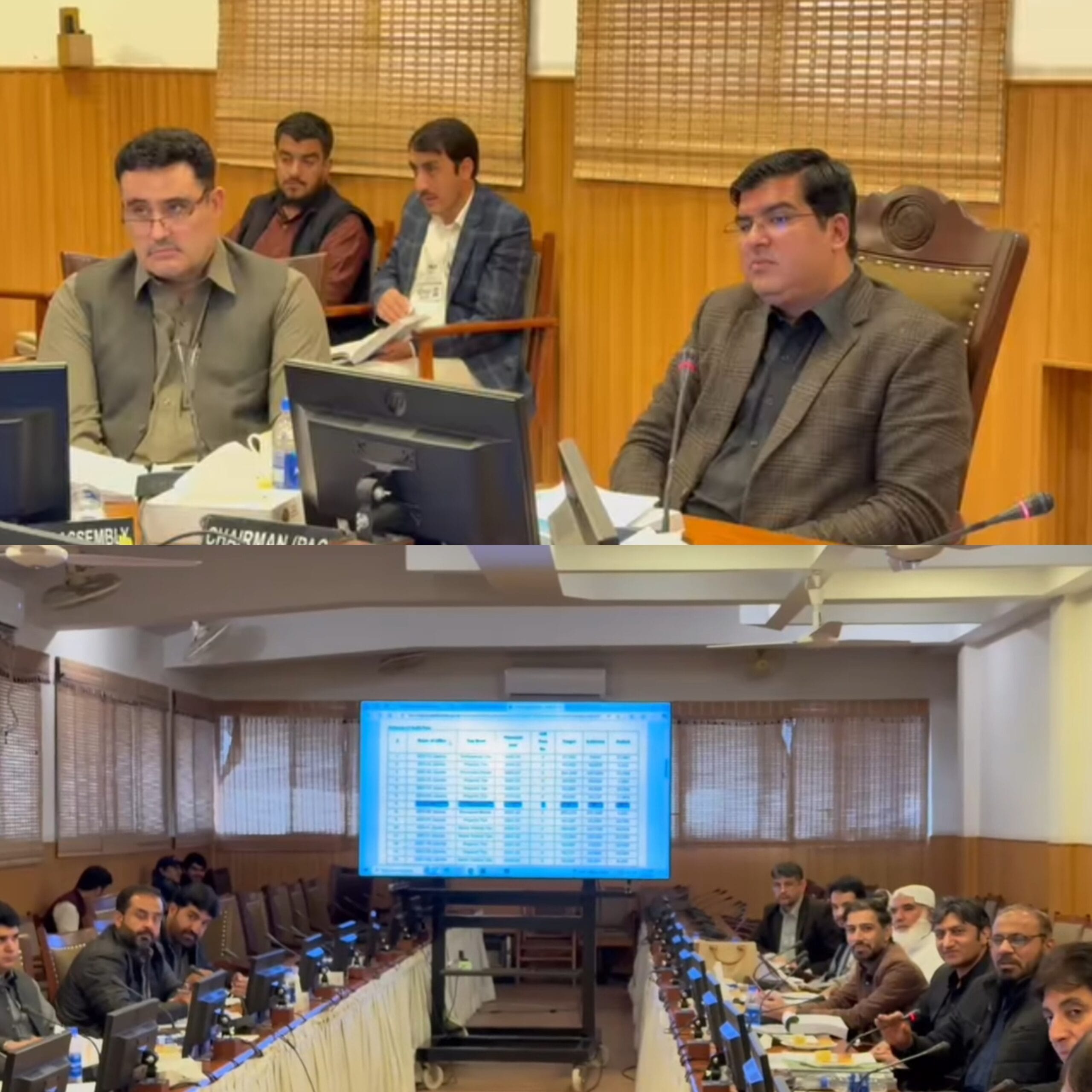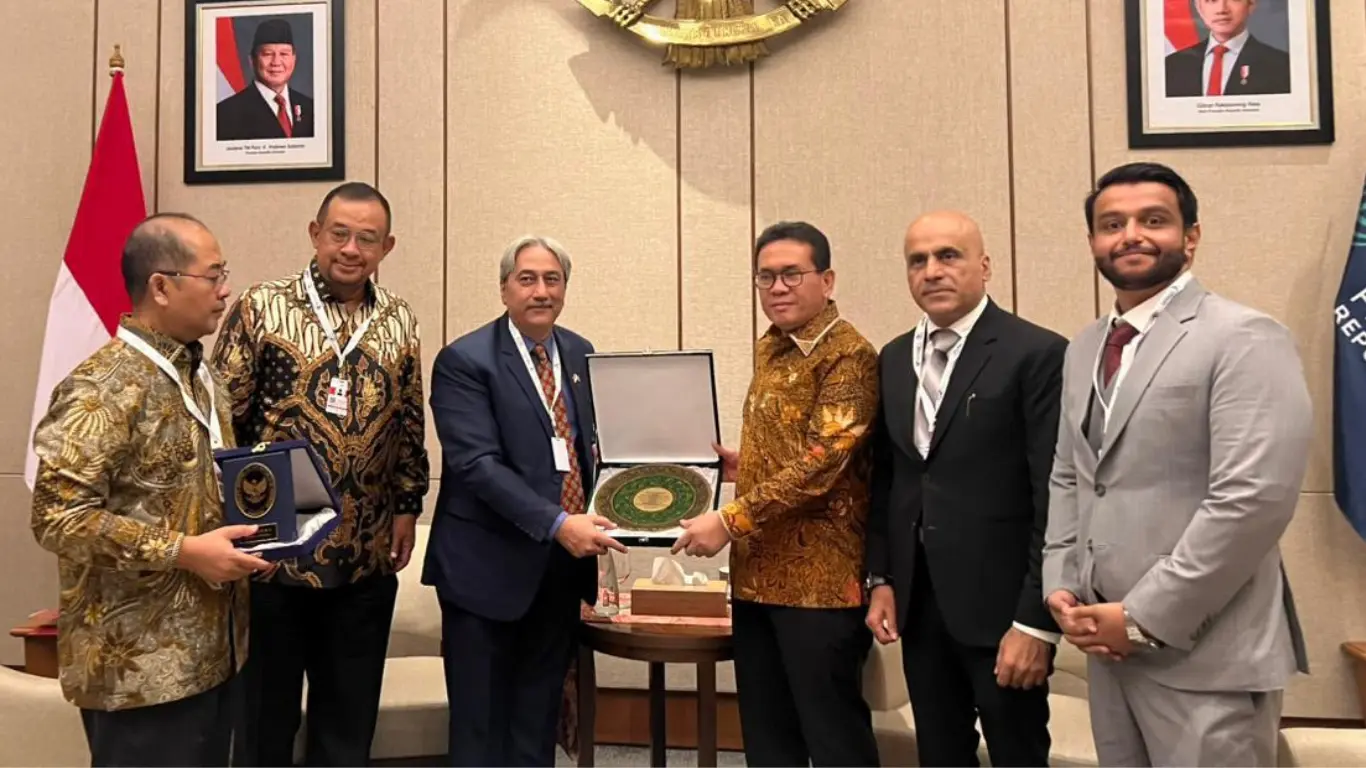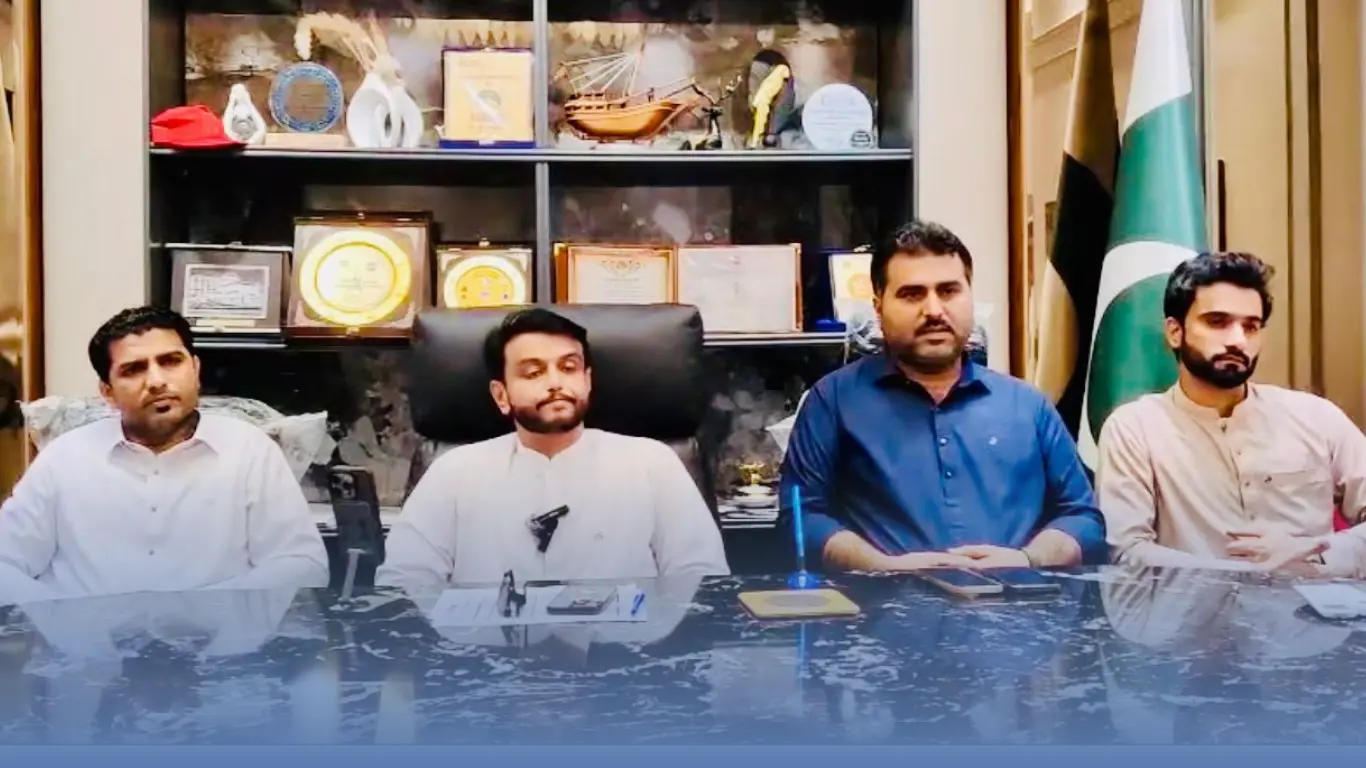
Public Accounts Committee Reviews Excise and Taxation Audit Reports
The Balochistan Assembly’s Public Accounts Committee (PAC) convened a meeting in the assembly’s committee room, presided over by Asghar Ali Tareen. The session focused on the audit reports of the Excise and Taxation Department for the fiscal year 2022-23. Several government officials attended, including Secretary Assembly Tahir Shah Kakar, Accountant General Balochistan Nasrullah Jan, DG Audit Shuja Ali, Secretary Excise and Taxation Syed Zafar Ali Bukhari, Additional Secretary PAC Siraj Lehri, Additional Secretary Finance Hafiz Muhammad Qasim, Chief Accounts Officer Syed Muhammad Idrees, DG Excise Zeeshan Raza, and others.
Department’s Role and Committee’s Concerns
The Excise and Taxation Department is responsible for tax collection, revenue generation, and ensuring transparency in financial operations. The PAC expressed concerns over inefficient budgeting and revenue shortfalls, deeming the department’s performance inadequate.
Budget and Accounts Review
The committee reviewed the non-development budget for FY 2021-22, which had an allocation of PKR 1,221.526 million, out of which PKR 1,045.634 million was spent, resulting in unutilized funds of PKR 175.893 million (14.40%). Additionally, the department acquired extra funds from the Finance Department, which was granted in violation of financial regulations. Members highlighted this as a sign of poor budgeting and inefficient fund utilization.
Decline in Revenue Collection
PAC expressed concern over the department’s failure to meet revenue targets for property tax, motor vehicle tax, provincial excise, and professional tax, causing a revenue shortfall of PKR 580.996 million. The committee chairman called this failure a serious lapse in financial management.
The department had been notified in June and December 2022, but no response was received. During a December 26, 2022 DAC meeting, officials claimed that revenue targets were set without their consultation. However, committee member Zahid Ali Reki pointed out that all departments participate in budget meetings before finalizing targets.
To address this issue, the committee recommended that future revenue targets be set through mutual consultation, ensuring the presence of the relevant secretary instead of lower-level representatives.
Committee members stressed that if the department finds certain targets unrealistic, it should formally challenge them. Otherwise, achieving them is mandatory. The committee also emphasized coordination between the Finance Department and Excise and Taxation Department to ensure effective tax collection.
Concerns Over Uncollected Taxes
The PAC reviewed audit reports highlighting PKR 94.726 million in outstanding property tax, cantonment board revenue shares, and rickshaw road taxes. Key concerns included:
Failure of excise offices to collect property tax from residential and commercial properties.
The Cantonment Board not transferring the 15% provincial share of house and property tax, as mandated by Presidential Order 13, 1979.
Lack of an efficient system for rickshaw road tax collection, making it difficult to track defaulters.
Despite repeated reminders in June and December 2022, no recoveries were made. During the December 26, 2022 DAC meeting, the department agreed to collect outstanding property taxes and recover dues from the Cantonment Board.
The committee chairman directed immediate tax recovery and instructed the audit department to monitor progress. Members further discussed that before reclaiming property tax dues from the Cantonment Board, the government should first clear its pending octroi (chungi) share payments.
The committee ordered the Local Government, Excise, and Finance Departments to hold a joint meeting on the matter and report back to the PAC.
Implementation of Compliance Reports
The committee voiced concerns over the lack of action on audit objections. Members emphasized that compliance reports should reflect real solutions, preventing recurring discussions on the same issues.
The PAC directed all relevant departments to take immediate action on audit objections and submit progress reports.






